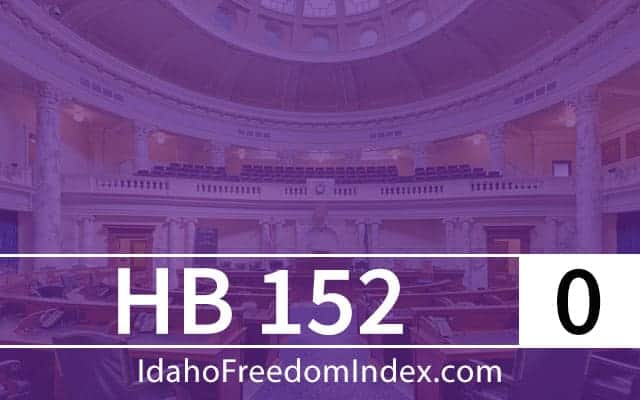


Bill description: HB 152 would allow naturopaths an increased scope of practice and would allow practitioners to get a license.
Rating: 0
Does it increase barriers to entry into the market? Examples include occupational licensure, the minimum wage, and restrictions on home businesses. Conversely, does it remove barriers to entry into the market?
Currently, naturopathic doctors are allowed to work in Idaho. But they are limited in the work that they can perform. As unlicensed medical professionals, they are not permitted to perform all that they have been trained for. Their scope of practice is artificially limited to much less than what other primary care providers can perform. This, despite the fact that naturopathic doctors receive at least 8 years of college education (four years of undergraduate education and four additional years at the graduate level).
HB 152 is an attempt to allow naturopathic doctors to practice to the full extent of their education, training, and experience, without creating an artificial barrier into the market. It would do this by allowing naturopathic doctors who choose to get a license from the state to expand their scope of practice to include:
Naturopathic doctors would not be required to obtain a license to practice in the state. The many naturopathic doctors who are practicing here now would be permitted to continue their practice just the same, without obtaining a license. HB 152 specifically states that these new statutes would not prohibit doctors from calling themselves a naturopathic doctor, a naturopath, or otherwise as an individual trained in alternative healing methods. Only the title of “licensed doctor of naturopathy,” and other titles, including “licensed,” would be restricted to licensed doctors.
To receive the expanded scope of practice, a doctor would have to hold a degree from an accredited program, pass a national examination and otherwise meet the requirements of the board. If a doctor holds a license in one of the 20 states that currently license naturopathic doctors, HB 152 would allow that person to obtain a license by endorsement, without having to go through the full application process. The neighboring states of Washington, Oregon, Utah, and Montana each license naturopathic doctors. This provision would allow doctors in these states, particularly those who work every day with Idahoans who cross the border to receive care, to establish practices in Idaho, where they can operate with the same scope of practice they would have in other states.
(+1)
Does it create, expand, or enlarge any agency, board, program, function, or activity of government? Conversely, does it eliminate or curtail the size or scope of government?
HB 152 would establish a new naturopathic licensure board consisting of three licensed naturopaths, one physician, and one public member. This board would serve as an advisory board to the state Board of Medicine. The Board of Naturopathic Physicians would be responsible for establishing a formulary for licensed naturopaths, which would specify the procedures, devices, and medications licensed naturopaths can offer patients. The board would also oversee all licensees and applications, investigate violations of the practice act by licensed naturopaths, and be responsible for disciplining licensees who violate the law.
(-1)


